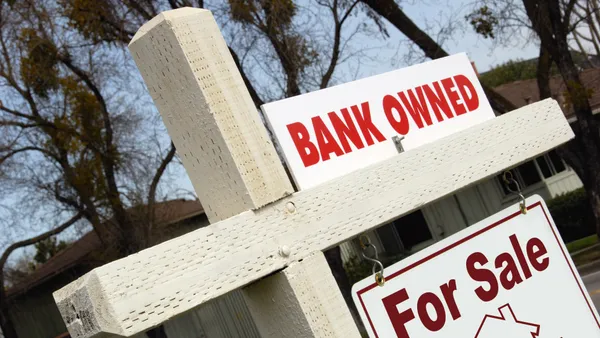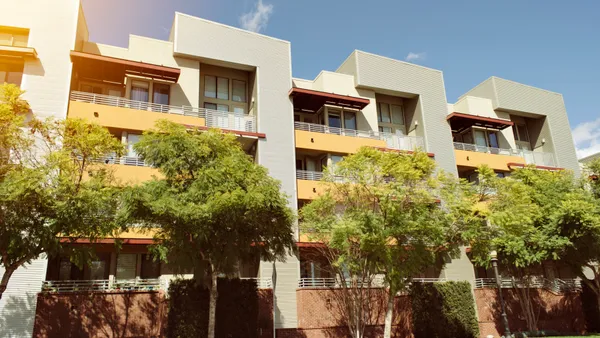Dive Brief:
- Equity holders of an 11,000-unit, $800 million apartment portfolio have hired San Antonio, Texas-based apartment owner, manager and developer The Lynd Group to turn around the 50 properties throughout 12 states, according to a news release shared with Multifamily Dive.
- Although the release didn’t mention the original owner of the portfolio, commercial real estate newsletter The Promote reports that the portfolio was controlled by Moshe “Mark” Silber of New York City-based apartment investor Rhodium Capital Advisors.
- Lynd will conduct a deep-dive assessment and uncover ways to boost value through better operational efficiencies in the portfolio, which an independent fiduciary will oversee. The company has managed 180,000 units through its four decades in business.
Dive Insight:
In July, Lynd and Declaration Partners, a New York City-based investment firm, formed a programmatic partnership to invest in multifamily asset workouts and distressed situations, according to the release.
Since the global financial crisis, Lynd has purchased more than $1 billion of distressed notes secured by 40 properties. In 2024, Lynd advised on a 10,000-unit portfolio in the Northeast, 1,000 units in Central Louisiana and 1,000 units in the South Central region. It also signed a joint venture agreement with a Houston-based apartment investment firm to evaluate a 2,600-unit portfolio.
“Many times, the borrower and lender have reached an impasse where sharing facts and dealing in reality become a challenge,” Lynd said in the release. “Our role is to bring a fresh set of facts with a clear path forward to devise a better result than foreclosure and disputes where both sides practice mutually agreed destruction.”
Rising distress
Apartment distress is rising nationwide, potentially giving Lynd and other operators more opportunities. The CMBS multifamily special servicing rate rose 60 basis points to 5.71% in August, reaching its highest point since December 2015, according to data firm Trepp.
CMBS delinquencies also increased for apartments, rising 67 bps to 3.30%. Multifamily also contributed the largest net change in delinquent dollars of any sector, with a total of $407.8 million.
The owner of the 11,000-unit portfolio faces many of the same issues hitting other owners. It purchased the properties as a value-add play but ran into problems when interest rates rose and costs increased, making it difficult to make needed improvements, according to Lynd.
“Due to the sheer size and complexity of the transaction, we needed all hands on deck,” Lynd said in the release. “It was fun getting into the weeds on this one. We are seeing a lot of value being eroded due to poor on-site execution.”
Click here to sign up to receive multifamily and apartment news like this article in your inbox every weekday.











